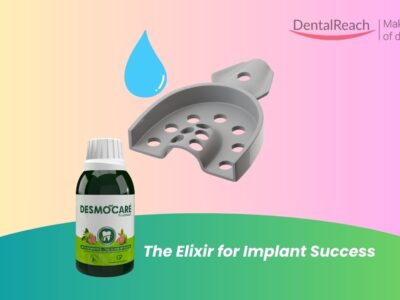Alternative antibiotics to amoxicillin have been associated with a higher rate of dental implant failure.
According to a new study by experts at NYU College of Dentistry, patients who report a penicillin allergy and are given alternative antibiotics are more than twice as likely to fail dental implants as those who are given amoxicillin.
The study, which was published in Clinical Implant Dentistry and Related Research, is the first to look into the effects of antibiotics other than amoxicillin when it comes to dental implants.
Dental implants are a safe and long-lasting way to replace missing or damaged teeth. A screw-like implant is surgically implanted in the jawbone to act as the root of a replacement tooth and anchor the artificial tooth. Over the course of several months, the bone fuses to the implant, allowing it to integrate into the jaw.
While the majority of dental implants are effective, a tiny percentage of them fail because the jawbone does not adequately integrate the implant. This can be caused by a multitude of factors, including illness, smoking, or a tooth injury. Many dental professionals prescribe amoxicillin, a penicillin-related antibiotic, before and after implant surgery to lower the risk of infection. Alternative antibiotics might be provided if a patient reports an allergy to penicillin.
Patients with a penicillin allergy had a greater likelihood of dental implant failure, although previous research hasn't looked at which antibiotics were utilized. To better understand the effects of different antibiotics, researchers from NYU College of Dentistry examined the records of patients who had dental implants, noting which antibiotics were given and whether the dental implant was successful or not.
A total of 838 patients were enrolled in the study, with 434 of them reporting a penicillin allergy and 404 patients who did not. Patients who did not have a penicillin allergy were given amoxicillin, while those who did had an allergy were given clindamycin, azithromycin, ciprofloxacin, or metronidazole as a substitute.
Dental implants failed in 17.1 percent of patients with a penicillin allergy, compared to 8.4 percent of individuals who did not have a penicillin allergy, according to the study. Patients who used antibiotics other than amoxicillin were substantially less likely to have successful dental implants; the failure rate for clindamycin patients was 19.9%, and for azithromycin, patients were 30.8 percent.
Furthermore, patients with a penicillin allergy were more likely than those without an allergy to have their dental implant fail sooner (less than 6 months) (more than 12 months).
The researchers explain that the reason dental implants failed in patients with penicillin sensitivity is unknown. However, research reveals that penicillin allergies are over-reported, with 90 percent of those who claim to be allergic to penicillin being shown to be non-allergic after testing.
If the true allergy status of a patient is verified before oral surgery, we may be able to achieve better results by prescribing amoxicillin to those who do not have a true allergy.
"Although a growing body of evidence—at the research level—demonstrates links between oral and systemic conditions, the population still needs to know—at the consumer level—just how connected oral conditions, such as the success of dental implants, are to systemic conditions, such as allergies," said Leena Palomo, DDS, chair of NYU College of Dentistry's Ashman Department of Periodontology and Implant Dentistry. "This research emphasizes the need of patients to transmit correct and up-to-date systemic health information to their dentist.
Read the whole article here: https://www.ncbi.nlm.nih.gov/pmc/articles/PMC8532851/




















Comments